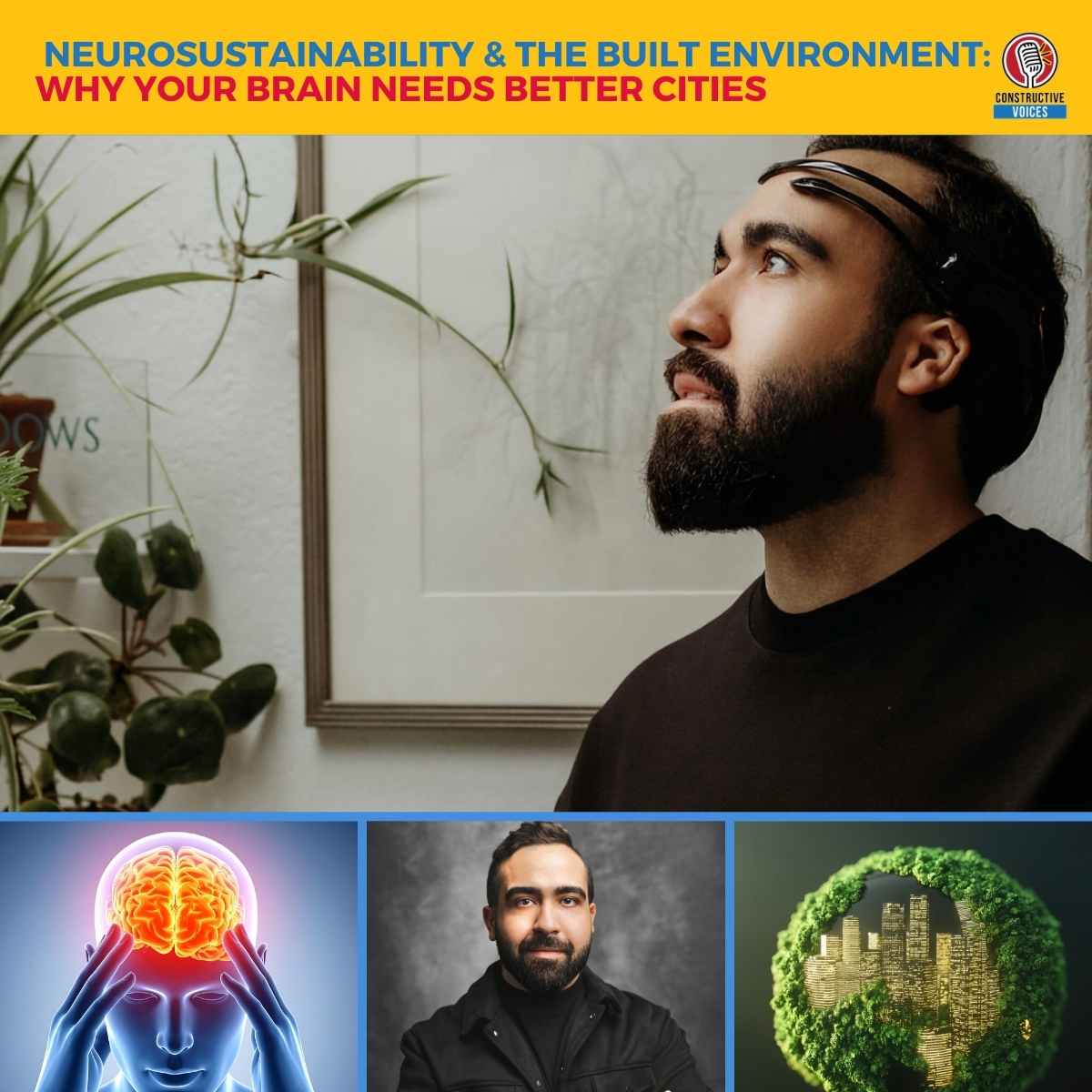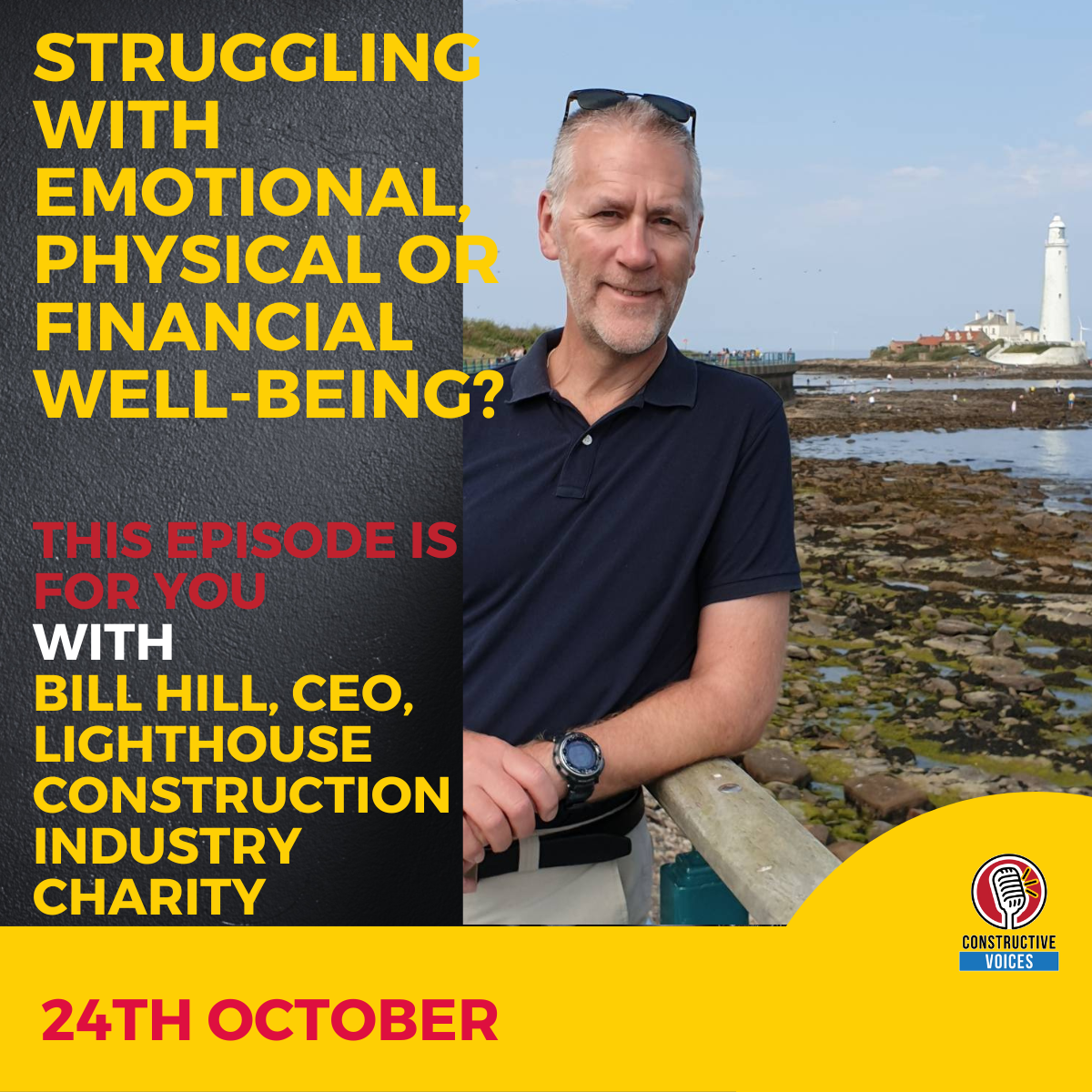Episode Transcript
[00:00:00] Speaker A: This is Constructive Voices. Hi, I'm Jackie De Berka for Constructive Voices, bringing you a brief interview which is part of one of our earlier episodes back in 2021. This is 12 minutes or so with the amazing Liverpool watcher, esteemed author Professor Michael Parkinson, A lovely gentleman who is so enmeshed in urban generation in general, but particularly his city or Liverpool. Over these 12 minutes you'll get a great understand of the background of Liverpool, a city that was on the brink of collapse, that is now having a renaissance. We've chosen this because we're really exploring Liverpool amongst many other cities at the moment and how it is doing excellent work in this particular case around nature based solutions and so many different other things that are moving towards a greener future that we need currently. Over to you, Michael.
[00:01:02] Speaker B: I've done a lot on cities in many countries, but I made my name writing and talking about Liverpool. I wrote Liverpool on the Brink in 1985 which showed the total collapse of the city, economically, politically, financially.
I wrote Liverpool beyond the brink in 2019 which demonstrated the continuing incredible, if incomplete, renaissance. So the best part of my professional career has been spent being a Liverpool watcher and jolly interesting has been too.
[00:01:37] Speaker C: And you're also an insider, aren't you? You're watching somewhat from the inside.
[00:01:41] Speaker B: I know them and they know me. I live in Toxteth. I've always done to do the kind of work I do. You need to know people, they need to trust you. And I still see people from the old days in the 1980s. Some of them are not politically very acceptable these days. I see those who run the city in every decade and I now know the people who run it at the City, the private sector people. So sadly, yes, I'm an insider, but I still think honest.
[00:02:12] Speaker C: And before we get into the specifics of this stadium project by the Mersey, what do you think are the reasons for the general renaissance from the vantage point of when you wrote your book and ever since?
[00:02:25] Speaker B: A whole set of things, I would say.
First of all, the city learned it had to stop complaining, criticizing and start focusing on what it was good at and take control of its own future. So the leadership changed is the first thing to be said.
Secondly, 30 years ago, the private sector and public sector were at odds at each other's throat. That's changed. So you've got now much more kind of a partnership approach and it's a cliche to working together.
There's some of the local factors, I think there's some very important external factors, as my Book showed British government made a huge difference when it was investing in cities. Liverpool went up and when it stopped investing in cities, Liverpool went down. So all the phase of Liverpool recovery coincided with governments which were keen to invest in cities basically. And you can look at that through the impact of Thatcher or New labor or Austerity or coalition government. So national government when it's against cities has harmed Liverpool when it's forced cities has helped Liverpool.
And I think the really crucial feature is European Liverpool is a global trading city. It's a European city. And frankly European money in the 1990s was the difference from between Liverpool collapsing and Liverpool recovering. 1.4 billion over 10 years.
Europe took a risk and invested in Liverpool when national government wouldn't. And all that European money made the city region work together, focused on its modern assets, skills, labor, heritage, tourism, city center, digital green. All the things which drive the Liverpool economy now were identified by the European Commission.
Actually the European capital of culture in 2008 was a crucial event because it showed the world we could run a proper affair. It showed ourselves we could run a proper affair. And it gave the Scousers really a self confidence back that they'd lost. So you went from this culture of failure to a culture of success. The other big big thing was the Duke of Westminster through his property company investing in Liverpool One in the 2000s. And Liverpool One is the best mixed use city century development in much of Europe. It was almost as much as European Commission money. 1.4 billion. It transformed the city center from a tired, rundown, shabby place to a place which was fit for a once great city. It connected the water to the city center to the commercial district, the cultural industries quarter.
There was a big hole at the central loophole and loophole one fixed it. So Europe capital of culture, Liverpool won local leadership, Labour Party changing its spots from the militant head banging into the progressive alliance. I also have to say there was some very good leadership in and around the 2000 when Labour was running national government from 97 to 2010. The city was not run by Labour, it was run by the Liberal Democrats and frankly the then leader Mike Story, now Lord Story and the chief executive David Henshaw, now Sir David Henshaw really saw the opportunity to reposition the city. And I think they were the crucial local ingredient which capitalized upon the crucial national ingredient which was the Labour government's invest in cities which captured the private sector realizing we can make money in cities which built upon European investment. So a series of linked factors from the personal to the political to the financial tell the Liverpool story, it ain't complete. There's lots of issues where we haven't done well enough economically, physically, socially, we all know there's problems, but it is unrecognizable from the place it was 35 years ago. It had a very good boom and actually had quite a decent bust. And Liverpool did not go as far backwards during austerity and coalition government as it could have done. So we're further up the hill and I think we're staying there.
And obviously Covid and the Pandemic has been a big hit for every city. We know that it's been a big hit for Liverpool because a lot of it is based on what you might call a city centre economy, tourism, retail. But also it has been a great bonus to the city because we have a very powerful educational medical complex which actually is leading in a lot of the infectious drug business. So on the one hand, Covid has hit what you might call the softer bit to the Liverpool city centre economy, but that is the lower value added bit. But actually it's underlined, we're a global leader in some of those really key, innovative, edgy things. So it's shown there are even issues to address there. We know, but in terms of health, Liverpool leads. We're doing all the government testing, all initiatives, all the pilots and they trust us. So I think it's been a mixed blessing and obviously terrible tragedy for people and families and communities.
But it has also shown economically there is still a lot for Liverpool to go on.
[00:08:39] Speaker C: One interesting thing you said in your preamble was bringing the city centre to the water.
Now that brings me to the Mersey, specifically to a place called Bramley Moor Dock. Tell me about that project, what it's going to do to this ongoing renaissance, as you call it, of Merseyside.
[00:08:57] Speaker B: The river made Liverpool the richest city in the greatest empire the world had ever seen outside of London. The collapse of the docks in the 60s and 70s and 80s dragged Liverpool down.
So it is. The river has been absolutely crucial to the city's economic renaissance to climb, rise and fall. Secondly, the river, I think is better than most riverfronts you can see. You might argue at Boston, you might argue about New York, you might argue about Hamburg, but as a riverfront, visually it is a stunning spectacle. It is big, it is wide, it is exciting.
And for 30 years, Liverpool turned its back to the water, its back to the city. When the Development Corporation got going in the 80s, we started to see the role of the river and the Waterfront and encouraged by Europe we realized it was a terrific asset and I think a huge amount has been done. But it's been a very small part of the river, the waterfront.
And I think what it really means is we fixed part of the city center and a part of the waterfront. Now Evan Football Club have got these hugely ambitious plans to put one of the most sustainable, greenest stadia in one of the most challenging parts of Liverpool city and city centre, which is North Liverpool.
So it is a project which we can talk about the numbers in due course which would transform the worst part of the waterfront. It's currently derelict and neglected. The only thing that's near the dock is actually the local sewage treatment factory.
It is a part which is very close to North Liverpool which grew up on the docks. And when the docks decline it fell. And therefore that part of the city has the worst economic social problems of any bit of Liverpool city region.
And it is physically not more than one mile from the regenerated city center. So Evan Football Club having tried to develop a new stadium for a long time and failed and needing to develop a stadium because it's a marvelous place but too small, have got a grand project to invest in Bramley Moor Dock to make a really high quality building with respects heritage, which would form a huge anchor in North Liverpool, would tie that part of the city at Bramley Moor which is the furthest part of the old docks back into the city center and would be a driver of development in that 1 mile between Bramley Moor and the frankly the Liber buildings.
There's already quite a lot of development going on there because of Peel waters for a company and there's a lot of residential stuff and some office stuff and that's taking place.
But the football stadium would be a huge economic driver. I mean we could talk about the figures about economic impact. It would be a terrific heritage thing. It would be a great visible project which would attract tourists and it would physically anchor and ensure that the growth of the city went back out into the parts which had failed. So huge symbolic significance, huge cultural significance, huge physical significance and hugely exciting.
And at the other end of the waterfront where we had the Garden festival of Michael Heseltine 1984 and I should say Michael Heseltine was, I should have mentioned as who helped fix Liverpool. He did with the Mersey Development Corporation. City Challenge with devolution letting go city regions. Heseltine and national level drove many of the initiatives which helped Liverpool. But we let the garden festival site go to rack and ruin that is now being developed in the south side of the city.
So what Liverpool has in prospect are two major developments, one north, one south, which themselves would be hugely significant, but would fill in the rest of the river down to the city centre.
This is Liverpool's new great project.
[00:13:53] Speaker A: This is Constructive Voices.


